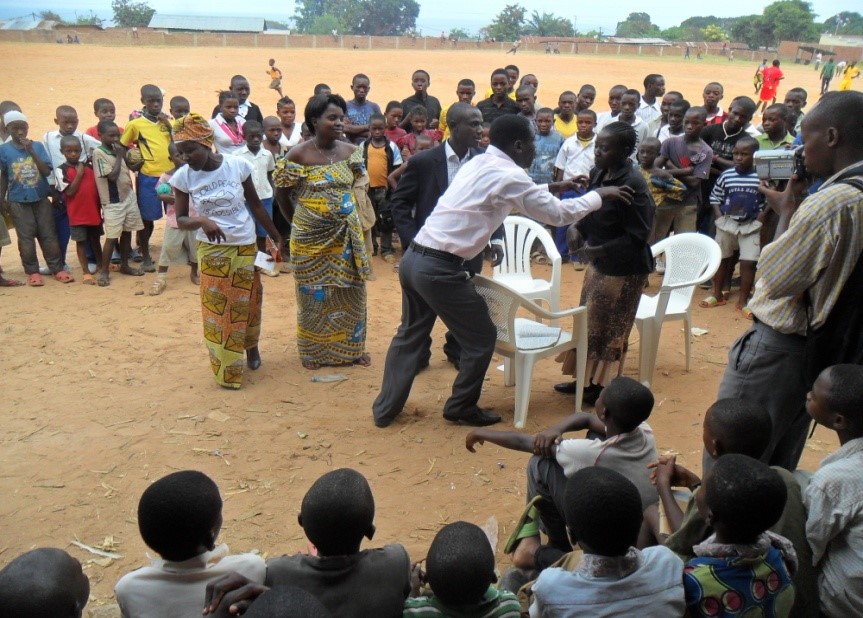By Chukwuma Okoli & Ndu Nwokolo
There has been a rise in violent incidents and deaths arising from Non-State Armed Groups (NSAGs) activities in the South-East and Anambra State. Data from the Nextier SPD Violent Conflict Database shows that there were 255 deaths and 157 incidents of violence involving NSAGs between January and May 2022. Anambra State accounted for 37 per cent of violent incidents and 41 per cent of deaths in the South-East during the period under review. The state government has demonstrated efforts to stem the tide through kinetic interventions such as destroying criminal hideouts, launching the Anambra State Security Trust Fund (ASSTF), etc.
In addition, efforts were made to boost security agencies’ operational effectiveness by implementing curfews in some locations within the state. However, while these kinetic interventions have yielded results, they tend to suppress the conflicts without necessarily addressing their root causes.
Kinetic interventions create imaginaries of the state government as a violent party in the conflict. This has implications for de-escalating the conflict and peacebuilding in the state. Thus, the government needs to do more in non-conflict interventions (NCIs) to win people’s support and attract the NSAGs to the negotiation table for sustainable peacebuilding. Policy think-tank, Nextier SPD, in its latest Policy Weekly bulletin examined the travails of deploying NCIs in Anambra State and offers actionable strategies for deepening NCIs for effective peacebuilding in the State.
TRAVAILS OF NON-CONFLICT INTERVENTIONS BY THE CURRENT ADMINISTRATION IN ANAMBRA
The Chukwuma Soludo-led administration has adopted various NCIs to address the growing violence and insecurity in the state.
First, the administration offered amnesty to the NSAGs and promised to rehabilitate and offer skill acquisition training to those willing to surrender. Unfortunately, the amnesty offer is yet to be accepted by the NSAGs and other agitators targeted by the peace deal mainly because the group considers themselves more as people fighting against the marginalisation of the South-East and not criminals that should be offered amnesty.
The Governor’s appeal for an end to the sit-at-home through prayer sessions in churches across the state was resisted NSAGs. At St. Joseph Catholic Cathedral in Ekwulobia, Aguata Local Government Area, where the governor participated in the prayer session and charged the people to embrace peace, to show rejection of the attempt to end the sit-at-home, gunmen visited the church at night. They shot sporadically in front of the church all through the night, leading to the death of at least one security guard due to gunshot injuries.
Additionally, the administration set up the Anambra State Truth, Justice and Peace (TJP) Committee to make recommendations for sustainable peace and security in Anambra State and the broader South-East region. While the report of the TJP Committee is being awaited, a recent study by Nexter SPD revealed some perceived threats to the TJP. The proposed amnesty to members of the NSAGs is the possibility of apathy of other critical stakeholders, such as other South-East governors, in accepting or implementing the recommendations of the TJP Committee. There is also the fear that victims of violence perpetrated by NSAGs may not accept the reintegration of the repentant perpetrators into their communities.
Furthermore, the current Soludo-led administration has opened up windows to resume the community Choose-your-Project initiative in which projects worth ₦25 million will be implemented in beneficiary communities. The community Choose-your-Project is being deployed as a bottom-up approach for improving infrastructures and providing social services and employment at the grassroots level. In this regard, the initiative, if properly implemented, has the potential for de-escalating violent conflicts, given that it can win the hearts and minds of the people and serve as a disincentive to some persons who participate in violent conflicts or provide tacit support to the NSAGs because of issues relating to their unemployment, poverty and dissatisfaction with the level of development in the state. This view is supported by Beath, Christia and Enikolopov (2017, p. 3), who demonstrated how community-driven development programmes might reduce violent conflicts by reducing the extent to which the local population provides active and tacit support to NSAGs. However, Beath, Christia and Enikolopov also noted that using community-driven development programmes as NCIs may not be effective where some of the NSAGs are not embedded in the local population.
Thus, if the recent claim by Prof. Soludo that a significant number of perpetrators of the violence come from outside Anambra is valid, then the community Choose-your-Project initiative in Anambra communities may not wholly address the current trend of violence by NSAGs in the state. This is given that the alleged external character of the perpetrators may not be impacted by the community Choose-your-Project but may resist the attempt by the government to win the people over through development programmes. Therefore, the NCIs adopted by the current administration require more efforts to make them fit for purpose by ensuring they are more inclusive at the drafting and implementation stages to impact both victims and perpetrators of violent conflicts by addressing the underlying drivers of violent conflict in sustainable ways.
GETTING IT RIGHT THROUGH NON-CONFLICT INTERVENTIONS WHICH IMPACT VICTIMS AND PERPETRATORS
Given the travails of the current administration in deploying NCIs toward addressing violent conflicts in the state, we suggest the following actionable strategies for deepening NCIs in the state and the entire South East region:
1. Multi-sectoral human capacity development programmes: The state government should partner with the private sector to commence human capacity development programmes by establishing skill acquisition hubs across the state which will take in youths and provide them with skills in various areas. The skill acquisition should be integrated with the renowned Igbo Apprenticeship System (IAS) to ensure that those who want to learn the trade are linked with notable successful business people in the state for an agreed period, after which seed capital will be given to the apprentice in the form of loan to be paid back after some time.
The human capacity development programme should not be limited to the informal sector but be extended to the formal sector. For example, the state can partner with private companies and academic institutions for students still in school to take up periodic internship programmes so that such individuals can acquire skills relevant to their course of study. There should also be start-up hubs where those who have just graduated from the capacity development programmes are provided with mentorship and possibly free spaces for a short period to navigate the challenges connected with starting up new businesses. Such a multi-sectoral human capacity development programme will reduce incentives by youths to join NSAGs or engage in other criminal activities.
2. Integrated community-driven development programmes: The community Choose-your-Project initiative should be upgraded to deliver one-stop projects to communities. This is to create much-needed employment opportunities and serve as sources of revenue generation for the communities and the state. To this end, while allowing communities to choose and implement their project should be continued, the government can facilitate partnership between the communities and experts/consultants in various fields so that the communities can be guided appropriately in project selection and implementation to ensure value for money.
The community projects should also be designed in partnership with the state government to establish linkages in the projects across the different communities, thereby bringing about integrated development that will contribute to the actualisation of the mega-city vision of the state. More so, robust monitoring evaluation and learning (MEL) should be built into the community projects to ensure the sustainability of the projects beyond the state funds and also provide an opportunity for replicating and scaling up successful projects.
3. Establishing a Peace and Security award: As part of the effort to get the local sub-communities and towns involved in achieving sustainable peace and security in the state, the state should partner with the private sector and development agencies in establishing a dashboard that monitors peace and security progress in the state. This should contain activities such as the most peaceful town, the less violent community, and the town with the best intelligence and early warning system, among others. Furthermore, prizes and projects to be paid from a peace fund will be awarded to communities and towns that top in each category to encourage the communities and towns to do more for peace.
4. Deepen Infrastructural development in the state: The state government should sustain its efforts to upgrade infrastructure in the state through rehabilitation of roads and street lights, cleanup of slums, clearing of sewages and canals, and improving waste management. Good infrastructure will enable businesses to thrive and provide opportunities for the youths to be engaged in thriving businesses.
5. Establish collaboration with other South-East states: The activities of the NSAGs cut across the entire South-East, including perpetrators who operate and hibernate across the whole South-East. It is, therefore, needful for the Anambra State government to deepen collaboration with other states in the South-East in the conceptualisation and implementation of programmes targeted at addressing the rising violence in the region.
POLICY RECOMMENDATIONS
1. The state government should partner with the private sector to commence human capacity development programmes.
2. The community Choose-your-Project initiative should be upgraded not just to deliver one-stop projects to communities.
3. The state government should partner with the private sector and development agencies in establishing a dashboard that monitors peace and security progress in the state.
4. The state government should sustain its efforts to upgrade infrastructure in the state by rehabilitating roads and street lights.
5. The State government to deepen collaboration with other states in the South-East in the conceptualisation and implementation of programmes targeted at addressing the rising violence in the region.
Conclusion
The rise in violent incidents across the South East and Anambra State calls for concerted efforts to scale up the state’s non-conflict interventions (NCIs). Drawing from the weakness of previous and existing NCIs, this brief offers actionable strategies for deploying multi-sectoral, integrated and sustainable NCIs that will positively impact the victims and perpetrators of violent conflicts. Consequently, it will contribute significantly to de-escalating conflict in Anambra State and the South East region.
*Dr. Okoli is an Associate Consultant at Nextier SPD and a Lecturer, Department of Political Science, Nnamdi Azikiwe University, Awka, Nigeria; while Dr. Nwokolo is a Managing Partner and Chief Executive at Nextier SPD and an Honorary Fellow, School of Government and Society, University of Birmingham, UK
Show quoted text



